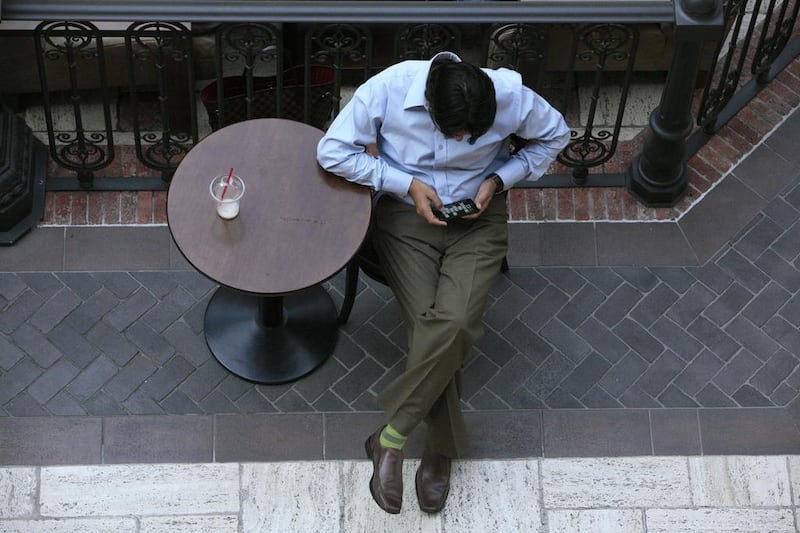DUBAI // The pressure to “keep up with the Joneses” in the image-conscious and social media-savvy UAE is driving people to anxiety, depression and into debt, experts warn.
Creating and updating an online persona is part and parcel of the social media experience for many of the 5.4 million people in the country who, according to research last year from Global Media Insight, spend up to three-and-a-half hours a day on Facebook, Instagram and Twitter, among others.
While some are happy with the occasional selfie, others are motivated by a desire to show the world they are enjoying a successful lifestyle, with all the trappings that brings.
“If you’re on social media, there’s only one version of the ‘Dubai life’: the money, the excess, the shopping,” said psychologist Louise Lambert. “Even if it’s not the experience you want, you feel everyone is doing it but you.”
Ross Addison, a Dubai psychologist who has worked with both expatriates and Emiratis, said the issue could affect young and old, long-term residents and those who are new to the country.
“The UAE is a wonderful place to live, but it is also a highly competitive place where many people feel pressure to compete with friends and colleagues, both in the professional and personal arena,” he said.
With that in mind, people may find that they are constantly seeking more extravagance as a way of demonstrating to those around them a sense of success, said Mr Addison.
“This adds a great deal of pressure to those individuals who may not only incur longer working hours as a way of financing such a prestigious lifestyle, but may also lead to symptoms of anxiety resulting from a potential fear of losing a competitive edge against colleagues or friends.”
A study by Informate Mobile Intelligence in the United States last year found that, on average, social media users checked their accounts 17 times a day. In countries such as Mexico and South Africa, that figure was as high as 40 times.
Overuse of social media in this way can lead to depression and even eating disorders. Social anxiety is one of the most prominent side effects of social media, said Mr Addison.
“In some cases this may lead to addiction, which may be diagnosed on the amount of time spent on social media as well as the amount of time spent thinking about social media.”
Ms Lambert believed that an over-reliance on what happened online can bring on a kind of “existential crisis”.
“You can be at home reading a great book but you see others at brunches and other kinds of events and it can throw you off your values and course in life.”
The cost of maintaining such an image can also be an expensive process, with gym membership, clothes, expensive holidays and even cosmetic surgery causing people to live beyond their means.
Financial adviser Keren Bobker said there were huge numbers of people carrying high levels of personal debt in the UAE.
“Too many people succumb to the peer pressure of doing everything ‘five star’, from only going to high-end restaurants or bars to buying designer labels when this level of spending is not sustainable with their income,” she said. “I suspect that often it is because people move to another country and have to start making friends and feel they must impress.
“It can take a little courage, especially when younger, not to succumb to the peer pressure and to say you don’t have the money. Social media isn’t responsible but exacerbates the problem as some feel the need to show others how great their life is.”





